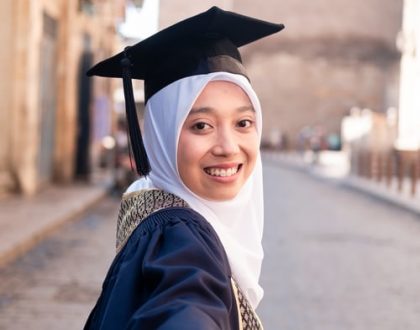How to View and Manage our Wealth

Managing Wealth
How much do we actually need? How much do we waste and how much do we save?
A prudent person should cover their basic needs, spend and lend and then invest in our future generations.
Bill Gates is a modern example of generosity and philanthropy. Within our Islamic history we have the instructive example of Saad ibn Abi Waqas (may Allah be pleased with him), one of the ten promised jannah at the time of the Prophet (peace be on him). He was immensely rich but had only one daughter, so he wanted to donate all his money to charity.
The Prophet (peace be on him) discouraged him from giving all his wealth away; undeterred Abi Waqas then wanted to donate half his money and was again discouraged, and finally he was permitted to give a maximum of a third away. This has been used as guidance for us all as the maximum amount of our wealth that we should give away and when planning our wills.
Sa`d narrated that the Prophet (peace be on him) visited me at Mecca while I was ill. I said (to him), ‘I have property; May I bequeath all my property in Allah’s Cause?’ He said, ‘No.’ I said, ‘Half of it?’ He said, ‘No.’ I said, ‘One third of it?’ He said, ‘One-third (is alright), yet it is still too much, for you’d better leave your inheritors wealthy than leave them poor, begging of others. Whatever you spend will be considered a Sadaqa for you, even the mouthful of food you put in the mouth of your wife. Anyhow Allah may let you recover, so that some people may benefit by you and others be harmed by you.’ (Bukhari)
Allah Almighty knows we love money. He Almighty tells us that wealth and sons are the adornment of this world in Surah Kahf, so let’s think about our finances.
Allah Almighty has created us to test what is in our hearts. By the same token, He Almighty has told us that He Almighty expands His provision and restricts the provision for His servants as He chooses and knows best. Our wealth, or lack of it, is thereby a test.
This test is not just in how we acquire the wealth- lawfully or unlawfully, e.g. through riba, unpaid loans, etc., but also in how we spend it.
Money should therefore be managed, circulated and invested mindfully. If we manage our wealth correctly by spending wisely and without israaf/ tabdheer (extravagance/ excessiveness), invest in our future generations (imagine your children and grandchildren not needing to take on a mortgage or student loan, for example) and our communities and give for Allah Almighty’s sake to rid our hearts of miserliness, we may insha’allah find that there is much more barakah in our wealth than we think.
Money magnifies what is in the heart of goodness or otherwise, and can be a portal to immense goodness in this life and the next life. The early impoverished companions (may Allah be pleased with them) would ask the Prophet (peace be on him) how they could earn the same reward as the wealthy companions as they could see how they were able to support the message in this life and invest in the akhirah.
The Prophet (peace be on him) said that the upper (giving) hand is better than the lower (receiving) hand.
A healthy economy is the pulse of society, giving it power, life and strength. Yet, we are responsible for how we look after what Allah Almighty has given us, for He Almighty has assured us we will receive our rizq- provision- in the course of our lives. Needless to say, we need to exercise the means through working for it and showing gratitude for what He Almighty has given us.
We should ask Allah Almighty for halal and tayyab, beneficial, rizq that suffices us.
Channelling our wealth correctly through circulating it in the community rather than hoarding it would reinvigorate our communities, give a way forward out of the oppression of riba and neo- enslavement through financial dis-empowerment of the masses and return us to being people of tafakkur and action (amal) rather than mindless economic brutes. It would also spread a message of solidarity and love.
Shaykh Haytham Tamim is the Vice President for Europe of the Association of Shariah Scholars in Islamic Finance
Related Posts
Islamic Mortgages, Insurance and Loans
Should I Invest in Cryptocurrency
What Do I Need to Know about Tawbah
Recommended Posts

Is it permissible to take out a student loan?
April 02, 2024

Riba – riches or ruin? – Tarawih reflections 12
March 21, 2024


